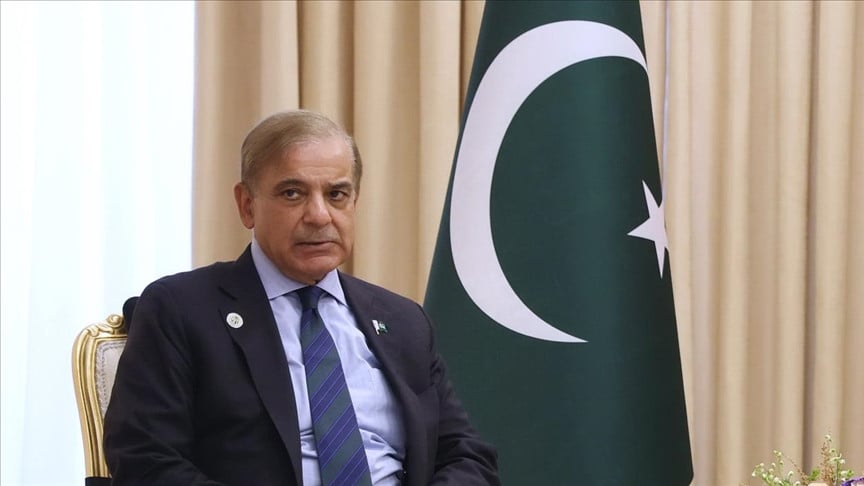ISLAMABAD: Prime Minister Shehbaz Sharif has emphasized his unwavering commitment to austerity measures to bolster Pakistan’s faltering economy, declaring that he will not bow to any pressure.
In a meeting with ministers and Federal Board of Revenue (FBR) officials in Islamabad, PM Shehbaz Sharif stated, “If there’s any honest mistake, we’ll rectify that. I will quit if I need to, but I will not come under any pressure, I want that to be loud and clear.” He further stressed the need for the government to “tighten our belts and serve the public” for the national interest.
This visit to the FBR headquarters follows the International Monetary Fund’s (IMF) agreement to loan Pakistan $7 billion. This deal, Pakistan’s 24th IMF payout since 1958, comes with conditions, including unpopular reforms aimed at expanding the country’s low tax base.
The economic situation in Pakistan has been dire, exacerbated by political instability, catastrophic 2022 monsoon floods, and global economic challenges. Last year, Pakistan narrowly avoided default thanks to emergency loans from friendly countries and an IMF rescue package. Despite these measures, the country still grapples with high inflation and substantial public debt.
PM Shehbaz commended his cabinet for securing the IMF loan but acknowledged the need for continued effort. “We will have to make sacrifices. Now is the time, it is our responsibility to act speedily and work tirelessly. Only then will this be the final IMF program in this country,” he said, advocating for taxing those who are not currently being taxed.
The government aims to raise nearly $46 billion in taxes for the 2024-25 fiscal year, a 40 percent increase from the previous year. Innovative measures, such as blocking 210,000 SIM cards of non-tax-filing mobile users, have been implemented to widen the tax base.
The IMF’s loan conditions include reforms to increase household bills to address the energy sector crisis and improve tax collection. Only 5.2 million out of over 240 million people filed income tax returns in 2022. The IMF expects these measures to enhance Pakistan’s macroeconomic stability and foster stronger, more inclusive growth.
However, Pakistan’s public debt remains a significant concern at $242 billion, with debt servicing projected to consume half of the government’s income in 2024. Analysts have criticized the reforms as superficial and questioned whether they will lead to fundamental changes in governance.
Ali Hasanain, associate professor of economics at the Lahore University of Management Sciences, remarked, “It is hard to not see old patterns in this new IMF deal.” He questioned whether the authorities would leverage this opportunity for substantial reforms.
PM Shehbaz reiterated the need for austerity and innovative tax strategies, stating that imposing extra taxes on compliant taxpayers is unjust. He emphasized the importance of adopting advanced technologies used by global tax authorities and pledged financial support to acquire the necessary tools.
“We collect billions, trillions, and we’re still going to the World Bank and others. A country cannot run like this,” he said, urging new strategies to alleviate the burden on honest taxpayers.


